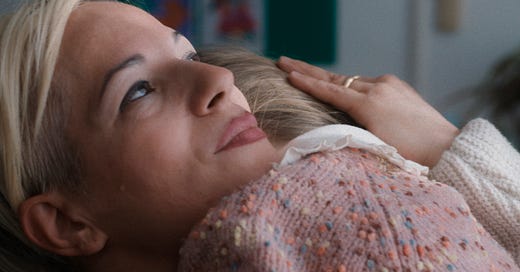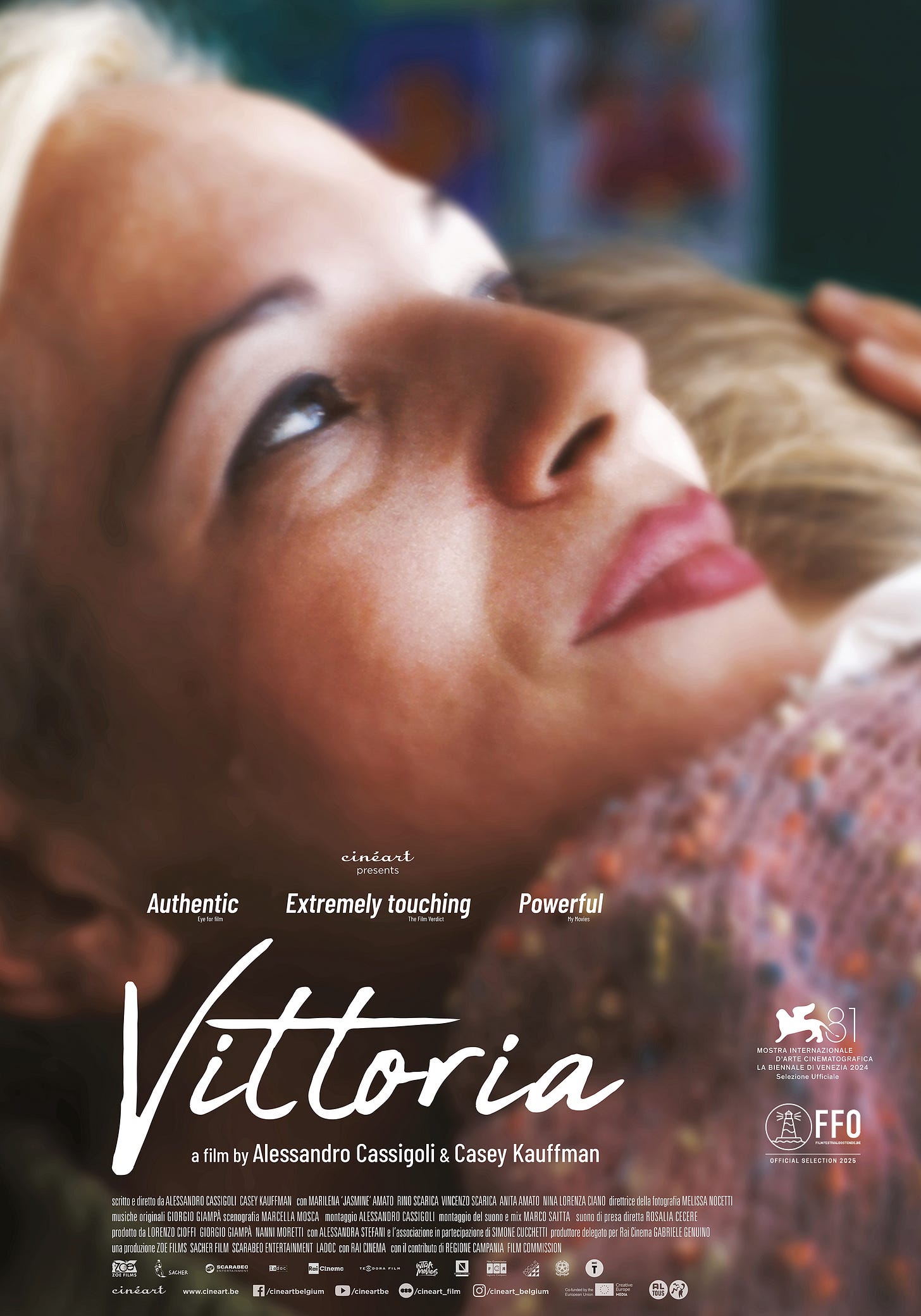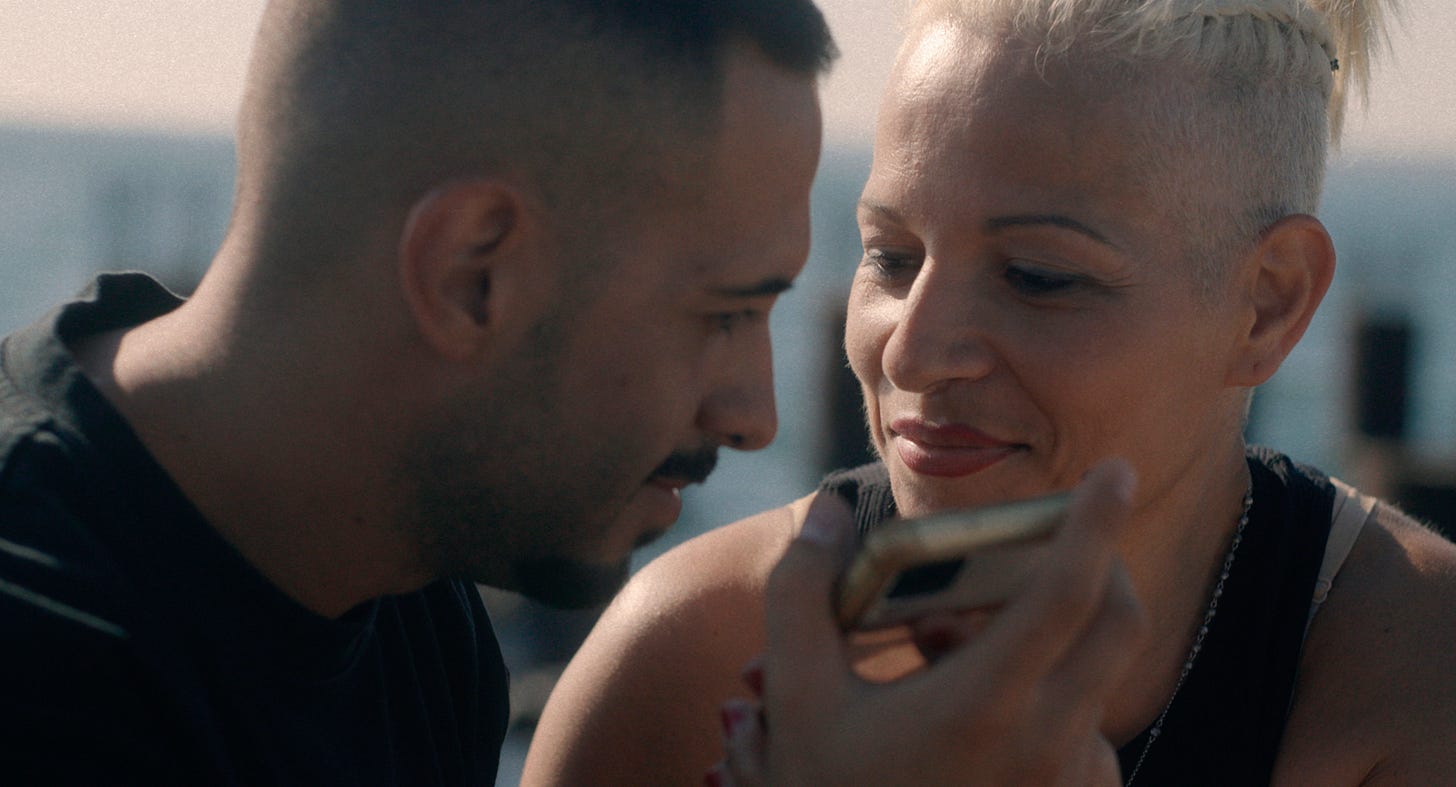Vittoria is a powerful and affecting movie, about an Italian mother who goes to extremes to make her family complete by adopting a daughter.
This is one of those real life stories that makes for real good drama. Vittoria is the third feature by the duo of Alessandro Cassigoli and Casey Kauffman, whose features so far always take place in Torre Annunziata, a port town near Napoli.
They started off with the documentary Butterfly (2018), about Irma Testa, Italy’s first female boxer to qualify for the Olympic Games. Then they made the drama Californie (2021), about a young immigrant girl trying to survive under harsh circumstances.
And now they’re back with Vittoria, which is not only based on the life of hairdresser Marilena Amato (here for fiction’s sake called Jasmine), but also played by herself and the members her family.
On the surface Jasmine (Amato) seems to have it all. She has her own hair salon, while her loving but somewhat macho husband Rino (Gennaro Scarica) has his own carpentry business. They have a home and, to cap it all off, three beautiful sons.
But after the death of her father, Jasmine starts having a recurring dream, in which she sees her father send a young girl across the street towards her.
Jasmine always wanted a daughter, but she doesn’t want to carry another child, so her mind is made up pretty quickly: she wants to adopt.
But try telling that to Rino, who is happily set in his ways. He dreams of moving both the family and his carpentry business to Capri, where he believes they will find their forever home.
Rino is happy with his three sons, but Jasmine is feeling the strain of living with four males and their predominantly male interests. So she doubles down on her desire to adopt, which is easier said than done.
Not only is there a whole adoption process to go through, which she accepts and respects, but to specifically ask for a girl, is both frowned upon and not possible in Italy (and many other countries). But maybe it’s possible in some other countries (like Belarus).
The whole process leads to a rift between the various family members, and when the oldest son Vincenzo (Vincenzo Scarica) ends up in hospital with a panic attack, Jasmine decides to let go off her dream. Well, until… it’s not like the movie is called ‘Vittoria’ for nothing, so there are still some surprises in store.
Rino sometimes comes across as the antagonist of the story, but he does love his wife very much, and in the end he very much comes through for Jasmine.
Cassigoli and Kauffman employ a cinema verite style, with a hand held camera that follows the family members up close in a way that’s often reminiscent of arthouse stalwarts the Dardenne Brothers.
The acting performances they draw from their non-professional actors are superb, with each character immediately and completely convincing, playing their real-life alter ego’s.
Marilena Amato is nothing short of phenomenal, and it’s through the rawness and emotional arc of her lived-in performance that we understand that for her, wanting to adopt a daughter is not a whim, but almost a matter of life and death.
Vittoria hits all the right emotional notes. It may not be a feminist movie in the traditional sense of the word, but it will definitely speak to those who consider themselves to be one.
I give it four stars!
Note: Vittoria had its world premiere at the Venice Film Festival, after which it played the festival circuit. So far the movie had theatrical releases in Italy and Greece, while on June 5 it’s released in The Netherlands.






